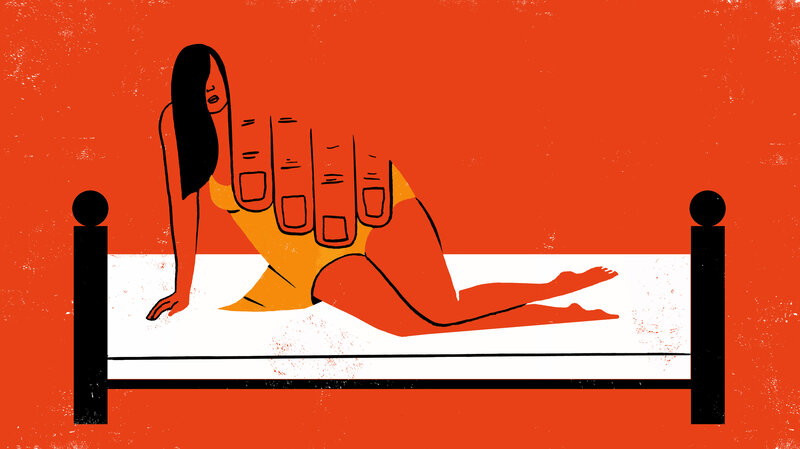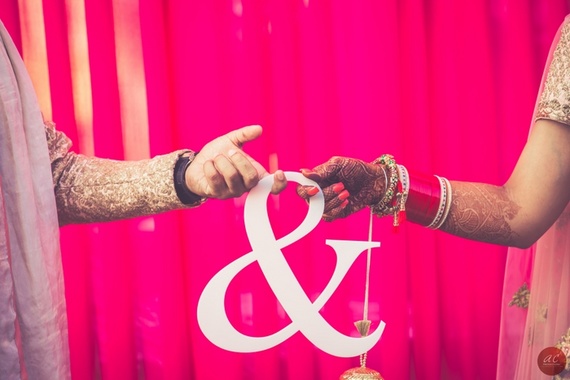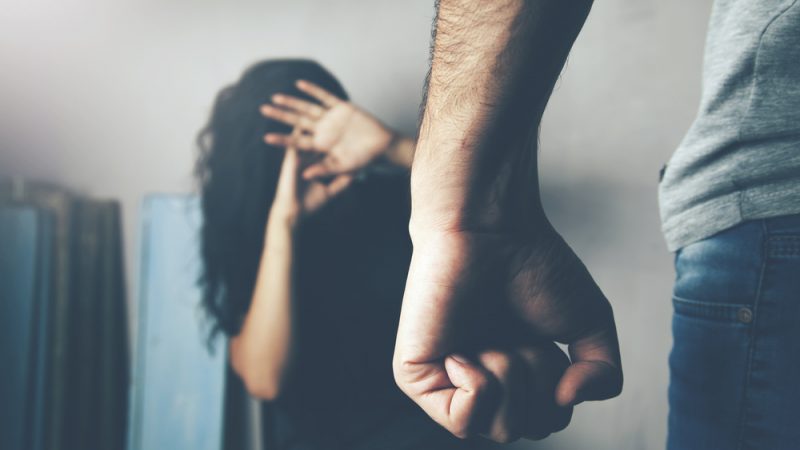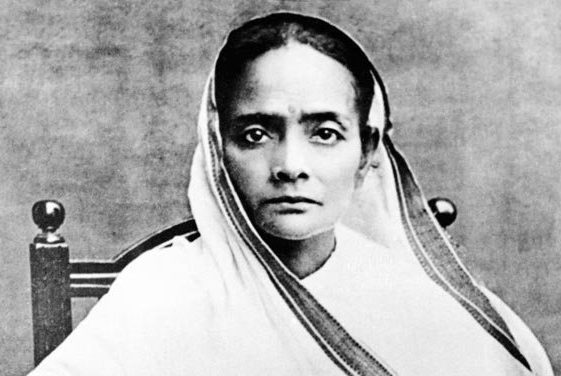By Vandana Bharti
Despite 75 years of independence, the social status of women in India still stands in shadows. Grievous crimes and alarming rates of pending cases portray the loopholes in the legal machinery of the Indian legal system. One such appalling act is that of Rape – where the dignity and self-respect of a woman is bruised beyond contemplation. When such an act occurs behind four-walls in a matrimonial home, it is known as Marital Rape. Where the spouse engages with his/her better half in a forceful, non-consensual sex it is termed as Marital Rape.
A legally sanctioned contract between a man and a woman forms marriage. In India, the legality of sexual intercourse between a man and a woman gives the husband leverage to consider the consent of his wife perpetual in the course of marriage.
Indian Legislation On The Offence Of Rape:
Section 375 of the Indian Penal Code (IPC) states – A man has committed rape if he had sexual intercourse with a woman against her will, without her consent, with her consent but by putting her in danger or threatening her, with her consent whom she believes that she was lawfully wedded to, with her consent but the consent was given in an unconscious state, and with her consent when she is under 15 years of age. Nowhere does this specify the essential elements and the repercussions of committing marital rape.
As per Indian Penal Code, husband can be convicted on grounds of marital rape only when:
- The wife is 15 years of age or below; and is punishable by imprisonment for up to 2 years or fine, or both.
- When the wife is below 12 years of age, offence punishable with imprisonment of either description for a term which shall not be less than 7 years but which may extend to life or for a term extending up to 10 years and shall also be liable to fine.
- Rape of a judicially separated wife, offence punishable with imprisonment up to 2 years and fine.
- Rape of wife of above 15 years in age is not punishable.
Precedents In the Law
In the Harvinder Kaur v. Harmandar Singh case (AIR 1984 Delhi 66 ), the Delhi High Court stated that the interference of the Constitution in household matters would destroy the marriage.
The court stated, “In the privacy of the home and the married life neither Article 21 [No person shall be deprived of his life or personal liberty except according to a procedure established by law] nor Article 14 [The State shall not deny to any person equality before the law or the equal protection of the laws within the territory of India] have any place.”
In 2019, while introducing the ‘The Women’s Sexual, Reproductive and Menstrual Rights Bill, 2018’ Shashi Tharoor, Member of Parliament in the Lok Sabha, said, “‘Marital rape is not about sex, but about violence; it is not about marriage, but about lack of consent.”
Naval Rahul Shiralkar, Advocate at High Court of Bombay Judicature at Nagpur, said, “Courts have various methods to identify marital rape and have given strict punishments but due to the lack of a law against a crime like that, the judiciary is bound to not admit ‘forceful intercourse by a man upon his wife’ as marital rape.”
Shiralkar said that many of the marital rape cases went unreported in India. He added, “There are at least 5-6 cases reported every year in Nagpur Family Court which are pending litigation.”
Saranya S. Hegde, President of the Mahila Dakshata Samiti, Bangalore, said that husbands often thought that they could do everything with their wives because society and marital laws supported that. “The helpless and dependent suffer in silence.”
Hegde said, “If a woman goes to a [family] court, the judge often favours the husband and asks the wife to adjust.” In her more than 15 years of experience, Hegde said she had seen women committing suicide due to the mental torture they went through because of marital rapes and domestic violence.
Kamlesh Premi, Counsellor at home at the Centre for Social Research, said the court procedures took almost five or seven years. Having been a counsellor for more than 20 years, Premi said that the judiciary system was too lengthy.
First, the woman has to complain to the Crime against Women Cell and get counselled. Then if she wants, she has to file an FIR (First Information Report) under Section 498 (A) (Husband or relative of husband of a woman subjecting her to cruelty) of the IPC, which in itself is quite a lengthy procedure. And at the end, even after an investment of at least five years and financial resources, the court would either ask her to adjust or maybe get her a divorce with maintenance. Hence, a lot of women compromise or either go for mutual divorce. “Therefore, there is a lot of under-reportage for marital rapes,” she added.
“It is in rare cases that a wife asks for a divorce or maintenance,” Premi said. “The biggest problem is that the husbands treat wives as private property. They think they own her.”
Dr. Ratna Purwar, a gynaecologist in Lucknow, said women often complain about the presence of vaginal or anal wounds in such severity that could substantiate rape. She added that, when men are asked to abstain from forceful sex with their spouse, the most common answer is, “Why did I marry her then?”
The financial dependency of women becomes a prime reason for all the physical and verbal abuse endurance. It had become normal despite the mental health depletion and trauma. Marriages in India have the concept of ‘implicit consent’ to sex and women sadly or happily comply and do not report it.
In the Anuja Kapur vs Union of India Through Secretary case of 2019 (W.P. (C) – 258/2017) , a PIL was filed asking the Delhi High Court to make guidelines and laws on marital rape. The court replied that drafting of the laws was the work of the legislature and not the judiciary. “The court is more concerned with the interpretation of the law rather than the drafting of laws.”
In the Nimeshbhai Bharat Bhai Desai vs. State of Gujrat case of 2018 (2018 SCC OnLine Guj 732), the Gujarat High Court admitted that marital rape was not just a concept and the notion of ‘implied consent’ in marriage should be dropped. The law must protect bodily autonomy of every woman (married or unmarried).
However, in Independent Thought vs Union of India on October 11, 2017, the Supreme Court stated that sexual intercourse with a girl, below 18 years of age, was rape regardless of her marital status.
Supreme Court of India, in the case of Independent Thought v. Union of India (2017) 10 SCC 800, read down Exception 2 to Section 375, IPC as being violative of Article 14 and 21 of Indian Constitution.
In 2017, the Daily reported a 2014 study by International Centre for Research on Women and United Nations Population Fund on 9,500 respondents in seven states of India. The report concluded that 17% of women received spousal violence while 31% (one in three) men admitted to committing sexual violence against their wives.
In 2016, Maneka Gandhi, then minister for child and women development, said that the ‘concept of marital rape’ that was understood internationally could not be applied to India considering the levels of illiteracy and poverty.
In 2016, the U.N. Committee on Elimination of Discrimination Against Women recommended that marital rape be criminalized in India. After that recommendation, a question was raised in the upper house of Parliament asking what action had been taken. Haribhai Parathibhai Chaudhary, then minister of state for home, replied, “It is considered that the concept of marital rape, as understood internationally, cannot be suitably applied in the Indian context due to various factors, including level of education, illiteracy, poverty, myriad social customs and values, religious beliefs, mindset of the society to treat the marriage as a sacrament.” This response was repeated literally by Minister Gandhi in the Parliament.
In the year 2015, the RIT Foundation filed a Public Interest Litigation in the Delhi High Court challenging the exemption of marital rape in Section 375 of the IPC. The challenge is on the basis of Article 14, Article 15 (a fundamental right prohibits discrimination by the state against any citizen on grounds ‘only’ of religion, caste, race, sex, and place of birth), Article 19 (freedom of speech which is the right to express one’s opinion freely without any fear through oral/ written/ electronic/ broadcasting/ press), and Article 21 of the Indian constitution.
Justice Verma Committee report (2013) recommended the discarding of the exception of marital rape. Providentially, in November 2017 a division bench of the
The Law Commission of India in its 172nd Report considered the issue of marital rape, but chose to ignore the voices that demanded the deletion of Exception 2 to s. 375 IPC on the ground that “it may lead to excessive interference with marital relationship” and may destroy the institution of marriage.
In the 42nd report by the Law Commission, it was proposed that criminal liability be attached to the intercourse of a spouse with his/her minor husband/wife. But the committee banished the recommendation stating that the sexual intercourse between a man and a woman can never impose criminal liability on the husband as sex is the parcel in a marriage.
The Supreme Court, while deciding the issue of marital rape of girls below the age of 18 years, made certain observations and comments that are equally applicable and relevant to married women over 18 years of age.
One of the foremost issues is that of the right to bodily integrity and reproductive rights. While referring to various precedents, the Court found that a woman’s right to make reproductive choices is also a dimension of “personal liberty” as under Article 21 of the Constitution. This right, in effect, would include a woman’s right to refuse participation in sexual activity.
The Supreme Court also noted views expressed by the Justice (Retd.) JS Verma Committee, where reference was made to a decision of the European Commission of Human Rights which concluded that a rapist remains a “rapist regardless of his relationship with the victim”.
According to the 2015-16 National Family Health Survey (NFHS-4), 31% of married women have experienced violence – physical or sexual. The NFHS reported that about 4% of women were forced to have sexual intercourse when they did not want to, 2.1% to perform sexual acts they did not want to, and 3% were threatened to perform sexual acts they did not want to.
In 2015, two separate pleas were submitted to the Supreme Court asking for the law to be amended by deleting the marital rape exception. In the first, the petitioner, a 28-year-old, had already filed charges against her husband for domestic violence (a civil, not criminal offense) as well as “cruelty.” She used her maiden name, Reema Gaur, to shield her identity.
She wanted to bring him to justice for repeatedly raping her. “The law as it stands today amounts to a state-sanctioned license granted to the husband to violate the sexual autonomy of his own lawfully wedded wife,” the plea stated.
Appearing on TV, heavily veiled, wearing spectacles that magnified her eyes, Gaur talked about her marriage. “Every night post the wedding was a nightmare for me. … He would never even ask my permission,” she said. “He used to beat me up, insert artificial [objects] in me. At some point I was in such a condition I was not even able to walk,” she said, her voice breaking with tears. On the night she decided to leave, she said, “He hit me 18 times on my head with a box and a torchlight. And then he inserted the torchlight in my vagina.“
Bleeding and in a semiconscious state, she called her mother for rescue. The bleeding lasted for two months. In the year she was married, when Gaur tried to talk to her in-laws and her parents, “The only thing they told me is, ‘Try to adjust.’ “
In 2014, Akash Gupta of the Rice Institute, a non-profit organisation reported, that the number of spousal violence received by the wives was 40 times more than that received by non-intimate partners.
Deepika Narayan Bharadwaj, a film maker and activist believe the state does not have the potency to support women if they are to seek divorce on grounds of marital rape. “It’s naive to say women have complete right of consent and rights over their body, when the truth is they’re dependent on their husbands for everything, financially, emotionally,” says Bhardwaj.
Trisha Shetty, founder of She Says, a website for information and action on sexual crimes against women argues that protection from Marital Rape is not a western issue that needs solving rather it is a basic human right. People in India are of the opinion that sexual abuse and marital rape only happens to the poor, the fallacy needs to be broken. “That whole assumption that you’re making laws for people who don’t understand is nonsense. Everyone understands the concept of consent, of saying, ‘No.’” says Trisha.
She Says and several NGOs, including Jagori (which in Hindi means “awaken, women!”), have organized workshops and other programs to help women speak out about the sexual abuse and rape. Online, there are additional resources, such as this Marathi language effort to educate about consent via two folk dancers having a musical discussion about the meaning of “yes” and “no.” The government has even set up an emergency hotline, staffed by women, to field calls from women who need police assistance as well as resources and instruction about their rights. In their first year, they received more than 600,000 calls from women, some describing assault and rape within their marriage.
Judicial Stand
In Bhodhisathwa Gautam v Subhra Chakraborthy (1996 AIR 922) it was held that marital rape is violative of Article 21; Right to live with human dignity. Supreme Court held that Rape is a crime against basic human rights and is also violative of victim’s most cherished of the fundamental right. A married woman too has the right to live in human dignity, right to privacy and rights over her own body. Marriage can in no way take away these rights.
In Justice K.S Puttaswamy v Union of India (2017) 10 SCC 1 , it was held that the right to privacy as a fundamental right includes decisional privacy reflected by an ability to make intimate decisions primarily consisting of one’s sexual or procreative nature and decisions in respect of intimate relations.
Uncovering the history of judicial decisions on infliction of serious injury by the husband on the wife the court in Queen Empress v Haree Mythee, (1891) ILR 18 Cal 49 observed that in case of married women, the law of rape does not apply between a couple after the age of the wife over 15 years of age, even if the wife is over the age of 15, the husband has no right to disdain her physical safety.
In Emperor v Shahu Mehrab (1911) ILR 38 Cal 96 the husband was convicted under Section 304A IPC for causing the death of his child-wife by rash or negligent act of sexual intercourse with her.
In State of Maharashtra v Madhukar Narayan Mardikar, AIR 1991 SC 207, Supreme Court referred to the right to privacy over one’s body. It was decided that a prostitute had the right to refuse sexual intercourse. It is wistful to know that all sexual offences committed by a non-intimate or a stranger have been penalised and all females except wives have been granted their right over their bodies.
In Sree Kumar v Pearly Karun, 1999 (2) ALT Cri 77 High Court observed that because the wife is living under the same roof with that of her husband, with no decree of separation, even if she is subjected to consensual or non-consensual sexual intercourse, the offence under Section 376A of IPC will not be imposed.
The idea of spousal rape is fictious to the Indian Judiciary, despite the mental and physical trauma of the survivor.
International Statistics
Marital Rape has been declared illegal and a criminal offence in 18 American states, 3 Australian states, New Zealand, Canada, Israel, France, Sweden, Denmark, Norway, Soviet Union, Poland and Czechoslovakia. A U.K. case of R v R changed the law to an extent that the courts ruled that even within a marriage, any non-consensual sexual activity is rape.
What can be done?
To help the victim surf the trauma, shelters can be provided as a temporary safe place to stay and the staff may help in the consideration of options available, legal aid services to offer free of cost legal services and advice, support groups to help the victim voice the upheaval. Articulate support for the enforcement of apt laws and for new legislation to curb sexual violence, education programmes and support initiatives at local, state and national level.
Conclusion:
The incessant exemption of marital rape from the ambit of criminal law succours the idea of wife being the property of the husband exclusively. Changing the laws on sexual offences needs to be tactful especially in a country like India where there is an existence of diverse and conglomerate personal and religious laws that might clash with the new amendments in the statutory criminal law. The immediate need of prohibiting and criminalizing marital rape is just not enough. Sensitization of judiciary and police along with educating the myriad believers of the airy concept of marital rape is required in order to acknowledge that the concept of spousal rape; getting raped by one’s spouse is not trivial, and definitely cannot go unpunished.






